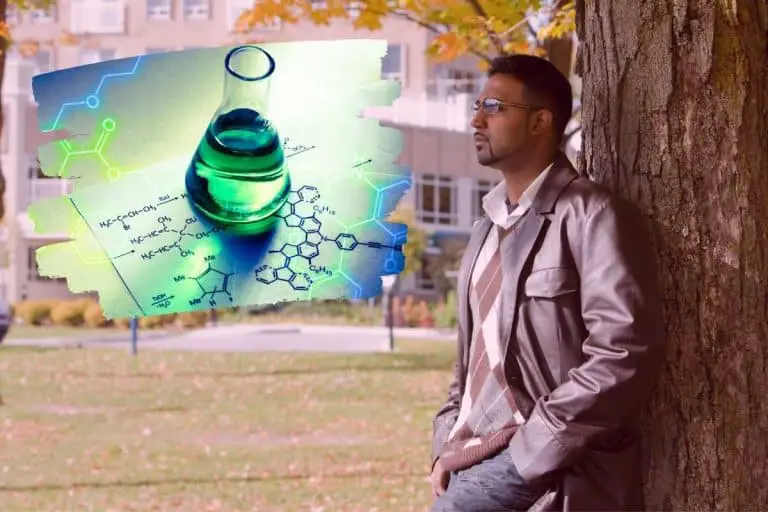Is Sociology Hard? What To Know About This Major
Sociology is a fascinating field despite the bad reputation it has garnered as pseudo-science. It focuses on society and human social behavior and the nature of social relationships and interaction. Unlike some other social sciences, sociology is highly engaging and applicable to students’ everyday lives.
Sociology is not hard due to its engaging content and relevance to everyday life and society. The subject allows a broad scope of specialization and application and a fine balance of theory and practical research. Sociology also uses students’ life experiences which aids engagement.
According to one Cambridge survey, sociology ranked as number 30 of 33 subject difficulty ratings. This trend seems to reoccur in many online rankings of subject difficulty in college courses. Sociology is a highly engaging course of study, and here are some facts you should know about this major.

How Hard Is Sociology?
Sociology is not that hard as it is easy to relate to one’s everyday life and society. However, one needs to master the concepts underlying the science, and students apply theories to real-life examples. Although not math-heavy, it does require algebra, statistics, and calculus.
However, just because Sociology is not hard, it doesn’t reflect a lack of complexity of the subject matter. Instead, sociology draws on the student’s life experience and relates to their world in their everyday interactions.
Rather than an abstract accumulation of knowledge, Sociology offers a unique balance between theory and practical application that enlivens the subject more than some social science subjects.
There are several reasons why sociology is considered an engaging and enjoyable subject. Let’s take a look at these now.
Sociology Allows You To Learn More About Yourself
Unlike many fields of social sciences, sociology allows for introspection and draws on a student’s own life experiences as part of their discipline.
Sociological imagination allows students to recognize their patterns of behavior and how opportunities to shape people’s experiences. Acquiring a deeper understanding of the structure and fabric of human societies allows students a unique glimpse into their behaviors and patterns.
They become more mindful of their own preconceptions and biases that shape their perceptions.
Being aware of the social inequalities and prejudice allows sociology students to have a deeper understanding of their lives and interactions.
Students Learn Transferable Skills
Sociology offers a deeper understanding of a wide variety of social situations and pressures that are easily transferable to other fields. Advanced research, presentation, and statistical analysis are transferable to several career paths and specializations.
Sociology allows students to acquire a unique blend of perspectives, both analytical and malleable to various social contexts and situations.
Because sociology involves changing human activity and relationships, it is highly adaptable to the social flux we find ourselves in the 21st century and beyond. Students also learn the following skills:
- Analytic and critical thought.
- The ability to express oneself coherently.
- Self-awareness.
- Cultural sensitivity and awareness.
Source: UM Career Centre
There Are Many Career Prospects With Sociology
Sociology can enrich a number of diverse career paths and aid your future employment prospects. Sociology touches on aspects of social interactions such as:
- Media
- Culture
- Crime
- Politics
- Identity
Sociology has proved invaluable in many other disciplines, and specializations and the skills involved in Sociology as a major may lead to possible careers in:
- Business
- Consumer relations
- Human resources
- Market analyst
- Project management
- Quality control
- Social work
- Industrial sociologist
- Organizational design consultant
- Social researcher/analyst
- Lawyer
- Paralegal
- Forensic investigator
- Law enforcement officer
You Learn Research and Project Development Skills
Sociology degrees offer advanced ability to apply theories to research and the planning and designing of projects. Sociologists learn how to gather data, interview subjects, and transfer theories into practice.
These skills are highly sought after in many fields, and the knowledge gained in sociological methods aid students in standing out to potential employers.
Students Learn Enhanced Analytic Skills
The analytic skills offered in sociology degrees teach students to read critically and evaluate the theories and evidence. The qualitative and quantitative analysis skills combine the science of hard data and the less tangible qualitative analysis.
The qualitative analysis concerns subjective characteristics and experiences that don’t necessarily have to be reduced to hard facts.
Sociology Offers Improved Interpersonal Skills
Sociology offers students an understanding of group dynamics, making them better team members sensitive to cultural considerations. Increased awareness of the nature of human relationships allows greater negotiation and communication skills both interpersonally and in workplace interactions.
It also fosters an awareness of how social privilege and prejudice play a role in our society. This awareness allows sociology students to be more sensitive in dealing with diverse individuals occupying each stratum of our collective society.
Communication Skills are a Must In Sociology
Yet another skill of this flexible and engaging social science is an enhanced ability to communicate effectively and coherently. One learns to articulate one’s arguments and how to defend a theoretical position through real-life examples methodically.
Often sociology encourages debate and involves public speaking, which aids a student in conveying complex ideas coherently and understandably. Usually, this requires communication on two levels as a social process and a specific social interactional discourse.
Considering that studies show a typical person spends 70-80% of their lives in some form of communication, this skill is invaluable for both our working and everyday lives (source).
Sociology Allows You To Make Changes in Society
To make societal changes, you will need to understand the reasons behind societal issues and their manifestation to address them. Sociology creates informed citizens who are more actively involved in society and strive to get others engaged in societal change.
Sociologists can change behaviors, ideas, and strategies and bring social issues to public attention by incorporating other diverse disciplinary approaches. They also hold the ability to expose unwelcome truths to elites, powermongers, and modern manipulators of society.
Is Sociology a Boring Class?
Sociology is not a boring class and is a dynamic field that teaches students how they fit into society and how others may perceive them. The discipline is multifaceted and evident in almost all aspects of life. Students may apply skills in this versatile field in various disciplines.
Like many first-year courses, Sociology may be quite “dry” in their initial study.
Students need to learn the theories and terminology behind the fascinating subject of sociology to express their arguments convincingly. Like many first-year courses, Sociology requires a lot of reading and memorization but not to the extent of majors such as Psychology.
Ultimately, if you have little interest in the dynamics of society and what drives and shapes human behavior, you will be bored. Teachers and lecturers also have a vital role in engaging students in dialogue and relating theoretical concepts to real-world examples.
Sociology teaches students to think critically about the role of underlying social assumptions and rejects easy explanations. Along with the theoretical aspects of Sociology, the field offers real-world examples and insight into people’s lives that are different from their own.
Sociology also offers a range of specializations so students can choose the field of study that resonates most strongly with their life experience. It has broad scope allowing a host of potential subfields to explore, such as:
- Gender and Sexuality
- Social Change
- Ethnic Studies
- Social Inequalities
- Social Research
- Social Movements
- Politics
- Social Change
What You Can Expect To Study in Sociology
As sociology studies human relationships and institutions, your subject matter may be diverse. It ranges from crime to religion and from the family unit to the state and embraces race and social class in its scope.
What unifies this diverse field is the focus on understanding how human consciousness and action do not exist in isolation. Sociology dictates that the surrounding social and cultural structures shape both consciousness and action.
It also involves a series of fundamental principles and theories that apply to a number of exciting fields.
Race and Ethnicity
Race and cultural identity impact a person’s behavior and interactions in society and are relevant to education and crime issues. Sociology explores how society constructs race and identity and how and why individuals identify with their particular group.
Sociological research shows how race and ethnicity are linked to social position and considers political policies and issues such as immigration identity formation and racism as an inter-group relation (source).
See How Hard Is Political Science?
Gender and Sexuality
Sociology offers insight into gender and sexuality and their basis in society and culture, and it examines how society treats different genders both in the public and private spheres.
Like gender, sociology views sexuality as shaped by social and cultural factors.
Sociology investigates sexual practices, behaviors, and orientation in society and how they are influenced by the social context from which they emerge. Sociologists also explore sexual identities and behaviors reinforced or discouraged by societal institutions and culture in general (source).
Crime in Society
Sociology studies crime as a violation of social norms and why such norms exist. It further explores whose interests are best served by particular laws and which part of society pays the cost of criminal transgression.
Conflict theory touches on crime as a manifestation of material inequality between socio-political groups drawn along divides such as race, religion, class, etc. Labeling Theory explores society’s role in labeling certain groups and individuals as deviant and thus eliciting criminal behavior (source).
Economy and Population Studies
Sociology explores and analyzes economic phenomena in society and how the role of interests in shaping and enforcing dominant modes of commerce.
Sociological theories suggest that the control of the economy allows the elite to maintain their dominance in society at the expense of those at the bottom of the economic spectrum.
They also explore the workplace as a site of gender and racial bias.
Family and Society
The family is the most basic social unit on which society and the family link to other social institutions such as the economy, government, and religion. They are also responsible for socializing with their children.
The family unit also helps regulate sexual activity and reproduction and provides members with social identity.
Sociology and Population Studies
Population studies in the field of sociology focus on analyzing the roots and consequences of population changes.
They focus on the cultural and social influences on population rates and trends, including migration, fertility, and mortality. Sociology also studies the impact of norms, values, and patterns of a society that affect the interrelations of its members (source).
The Future Of Sociology
Indeed, our accelerated flux of modern society calls for Sociology more than ever as a means to make sense of our world.
The digital revolution and the emergence of AI and the internet are changing the shape of modern society. Young sociologists have never had a more dynamic and emergent space to make their mark in these changing times.
Sociology explores the power and inequalities in the digital divide and addresses how unequal access to digital communication perpetuates other social inequalities. Sociologists also examine the post-industrial revolution and the new challenges faced by a society where work and life are increasingly blurred.
Societies increasing engagement with digital technology offers a fertile field for sociological exploration and is likely to grow in the future. Sociology has a crucial role to play in addressing citizenship and identity in the emerging digital age.
This social science also allows us to understand the structures and institutions in society’s influence on the low points of our history. We learn sociology to anticipate and avoid the same mistakes that caused catastrophic upheavals such as war and genocide in our past (source).
Conclusion
Sociology is not as difficult as other college courses, but it does require an enquiring mind and a keen interest in the workings of society. The subject offers a broad scope and provides invaluable tools in many careers other than the field of sociology.
The best part of pursuing such a dynamic field of study is that students gain insight into not only their society but themselves.
Recommended Reading:







